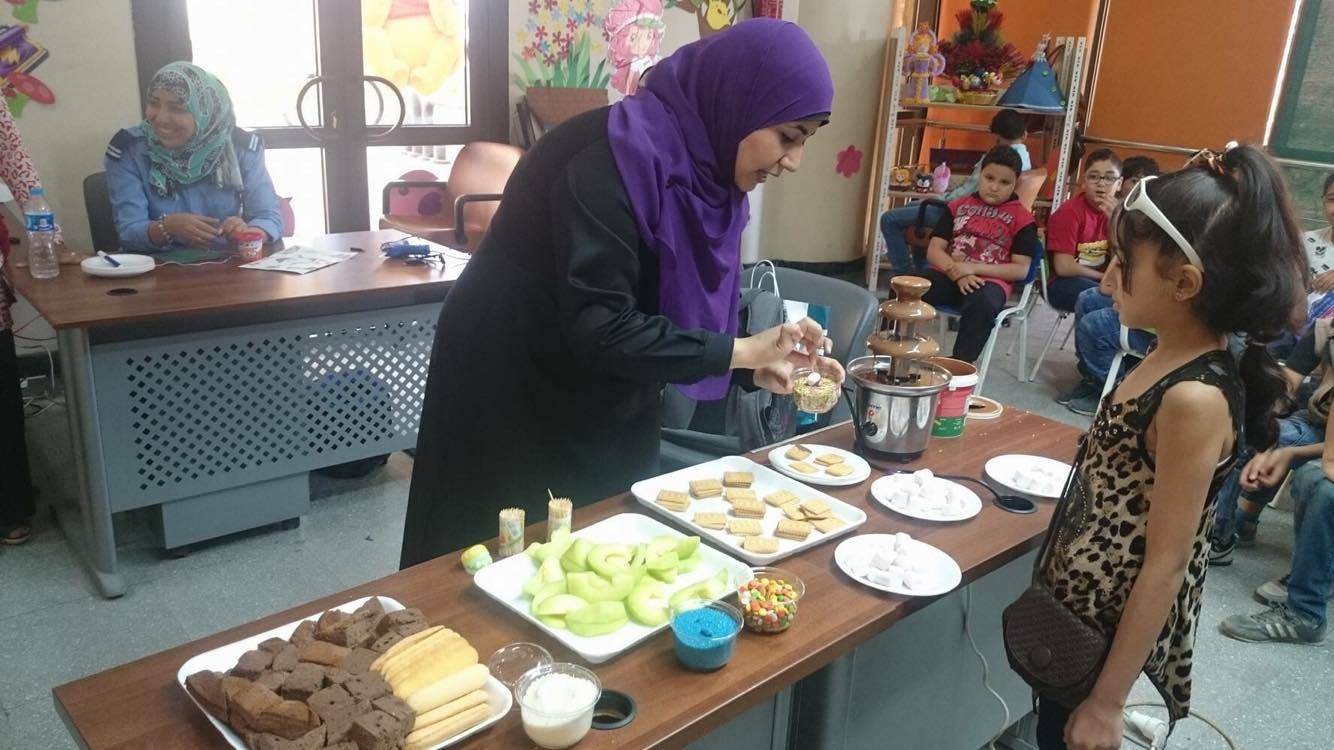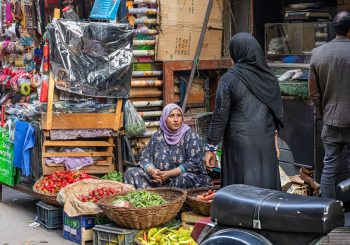It’s 8 pm and 26-year-old Mai Ahmed is immersed in preparing jars of Konafa with chocolate for her clients.
Mai, who runs her own dessert business from home, found that she has a golden opportunity to boost her business during the busy month of Ramadan by managing to meet clients’ demands on time and maintaining a high level of quality.
Ramadan in Egypt is known to be a time for Egyptians to opt out of their daily routines and spend more time with family members and loved ones to break bread together over iftar. After iftar, the sunset meal with which Muslims break their fast, families often perform the taraweeh prayer and then gather to indulge in some Ramadan desserts.
“The orders are tremendously increasing during Ramadan, the demand on desserts such as Konafa and Qatayef is high as it is a known tradition Muslims used to have after they break their fast,” the owner of the startup “Moly Bakes” told Egyptian Streets.
Konafa and Qatayef are comprised of Levantine pastries soaked in a sweet, sugar-based syrup, typical of the regions belonging to the former Ottoman Empire.
The business of homemade meals and desserts does not exclusively attract individuals who are unemployed or lacking a solid education. Many youths who are no longer interested in governmental jobs or working in the private sector have discovered their entrepreneurial spirits turned to home-based food businesses.
It is also no longer a necessity that startups offering homemade food be run by women, but for Waleed Abdul Rahman, an entrepreneur and the brains behind Mumm, enabling home-based women to start their own businesses is an effective way to empower more women.
“What we do is that we enable home-based cooks with the right tools to create sustainable job opportunities for themselves from their homes. The start-up ensures they are equipped with the right tools to deliver quality tasty food, for the consumer,” Abdul Rahman said.
Meanwhile, the idea of establishing a homemade food business has boomed in Egyptian society, particularly as a large percentage of the working force is comprised by women, whose time is often constrained as they juggle their personal and professional lives, as well as their household obligations.
For newlywed Amira Ahmed, turning to a homemade food delivery service is an easy solution – particularly during Ramadan – as she finds difficulty in making food at home while also tending to her new baby and keeping up with her work.
Mumm founder Abdul Rahman said that this demand is evident during Ramadan, when the entire staff is fully booked with delivery orders. He says that it is challenging to strike a balance between the month’s spiritual and social demands while also taking advantage of the high demand on his business to boost revenues.
“I work in Ramadan around 12 hours which is a set back from the normal day so I try to be courteous in social gathering yet limit my socialization time,” Abdul Rahman.
Many business owners of such startups begin their day early in the morning and continue dedicating their time to their business until late in the afternoon, only to resume work after breaking their fast to keep up with customers’ demands.
While the peak in demand means good business for homemade food startups, Amal Khalil decided to circumvent the extra pressure of delivering warm food in time for iftar and peak hours during the remainder of the year by launching a business that also offers frozen meals.
Khalil said that she tries to ensure the high quality of her food while maintaining competitive prices to attract more clients to her business, FroGoodies.
“It all started when I thought of sharing the warmth of home-cooked quality food with individuals living on their own, particularly in Ramadan as a way to compensate for the absence of their families,” the owner of the home-made food start-up said.
The name of FroGoodies refers to two things: Frozen to be at your convenience any time of the day and any day of the week, and goodies from different parts of the world to satisfy eager eaters’ taste-buds, Khalil says.
“Going out in Ramadan is mostly a hassle I don’t like to handle, particularly through this month which is dedicated to prayers and worship. As for gatherings, we usually opt to host them, so it’s another chance to showcase our goodies!” she added.







Comments (0)